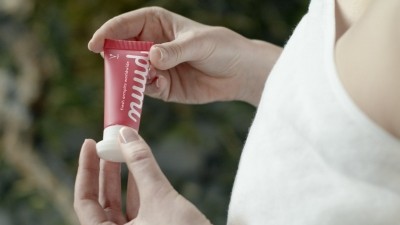Bio-based plastics to shrink beauty’s carbon footprint: ‘Have you got an appetite to do this?’

Environmental concerns remain top of mind for consumers, particularly in Western Europe – the region with the highest number of consumers consistently working to reduce plastic waste, according to Kantar Worldpanel.
However, many industry onlookers believe sustainable efforts to transform packaging in beauty and personal care have been “a bit piecemeal” and mass brands needed to “step up more”.
This month alone has seen a flurry of green change from big players, with L’Oréal’s announcement it would roll out paper-based cosmetic tubes in 2020 and Unilever’s pledge to halve its use of virgin plastics by 2025. As industry continues its action to minimise, eliminate or replace single-use plastics, alternative materials will garner increasing amounts of interest.
Re-used sugarcane waste
Plastic packaging firm Polythene UK believes it bio-based flexible polythene, made from sugar cane waste, would become increasingly important. The 100% recyclable and Carbon Trust-certified carbon neutral material ‘Polyair’ can be used in plain or printed form for a range of functions, including delivery bags, pallet covers, top sheets and lining.
Speaking to CosmeticsDesign-Europe, James Woollard, managing director at Polythene UK, said he hoped the beauty and personal care sector would turn its curiosity to the material, following extensive interest the food, drink and fashion sectors.
“We were approaching large organisations around five or six years ago. It’s only now it’s consumer-led that we’re getting the traction,” Woollard said.
The consumer was “quite excitable” about sustainable packaging alternatives, he said, and increasingly looking for change.
Woollard said cosmetics companies could of course look to replace some polythene layers with the sugarcane waste bio-based material, particularly the laminating layer, although that would require plenty of testing and research and development. For the time being, he said secondary packaging was a good and simpler starting point.
“For what’s available today, any manufacturers using secondary packaging can cancel their carbon footprint on all that by moving to Polyair,” he said. “This material enables them to cancel their carbon footprint on polythene.”
Willing to pay the price?
Woollard said companies just had to be prepared to invest in this eco switch, as the bio-based raw material cost around 60% more than regular polythene, resulting in a final price rise of 20-30%.
“Have you got any budget to make yourself carbon neutral on your polyethylene films used in your own business and supply chain? And have you got an appetite to do this?”
“…This is about reducing global warming, carbon footprint and making sure people understand what’s recyclable and what’s not. You need something sustainably-sourced and 100% recyclable. If we can achieve that, it’s a humongous CO2 footprint.”

















